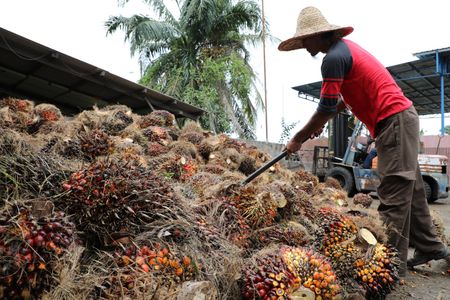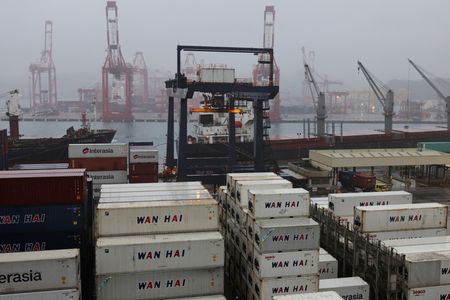By Ashley Tang and Rajendra Jadhav
KUALA LUMPUR (Reuters) – Malaysian palm oil exports to China will “remain resilient” this year despite their premium over rival oils and Chinese consumers’ shifting buying patterns, the deputy commodities minister said on Sunday.
Malaysia’s exports of palm oil to China declined in 2024 due to lower soybean prices compared to palm oil and lower consumption of cooking oil, Deputy Minister of Plantation and Commodities Chan Foong Hin said during a press conference after the China-Malaysia oils and fats forum.
“The population is aging and shrinking, as well as consumer behaviour is changing where they are now more health conscious. These have affected the buying patterns in China,” he said.
China is the second largest importer of Malaysian palm oil after India.
Chan said palm kernel oil exports to China grew last year on rising demand.
“Palm oil and palm-based products to China reached a value of 10.57 billion ringgit ($2.39 billion) in which the export volume of palm kernel oil saw an increase of 40%, mainly supplied to China’s oleochemical industry for the production of surfactants,” he said.
Meanwhile, Malaysian Palm Oil Board (MPOB) director-general Ahmad Parveez Ghulam Kadir said the palm oil premium over soyoil would continue to be a challenge in attracting demand but remained optimistic on demand from China.
“If exports do not increase (this year), we hope we can still maintain the exports we had last year,” he said.
According to data from MPOB, Malaysia’s palm oil exports to China totalled 1.39 million tons in 2024, down 5.3% compared to the year before.
Beijing HE Yi Rong Investment Group’s president, Zhou Shiyong, said palm oil exports to China will be highly dependent on price factors as the country is a price-sensitive market.
($1 = 4.4160 ringgit)
(Reporting by Ashley Tang and Rajendra Jadhav; Editing by Susan Fenton)











